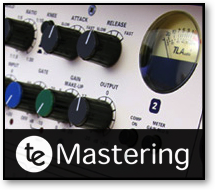




These production tips and tricks are designed to help you make the most of your music. Covering everything from mic technique to post-production, we hope you find them useful. If there’s a topic you’d particularly like to see covered then please feel free to get in touch




Industry news, useful links and what’s going on at Tenth Egg
© Tenth Egg Productions 2007




A different approach to music production.

Tip 4 : Get Perspective
music mastering

Tips and tricks from our engineers to help you with your music making

We all recognise the scenario when having spent hours laying down some new material or performing a mix you come back a day later to find that what sounded great at the time now sounds awful. In part this is likely to be the result of listening fatigue, as over time your aural perception becomes distorted. Though unavoidably there are ways to work around and reduce its effects on your work.
1. Watch the Volume:
The quickest way to fatigue your hearing is by monitoring at too high a volume. You’ll probably notice that during the session you are tempted to gradually turn the volume up as you find it more difficult to hear the detail. Try to avoid this trap and take regular breaks to let your ears rest. Try also to turn the volume down whenever you’re not engaged in critical listening
2. Get a reference:
As important as taking complete breaks from listening is taking a break from your own material and listening to reference tracks you know well. This can help reset your perspective not only in terms of tonal balance but relative levels and dynamics too.
3. Listen Different:
Another good trick to get a fresh perspective is to change your listening environment, either by switching to different monitors, possibly headphones or evening taking a mixdown to another room entirely. Away from the visual distractions of the software studio and with a fresh pair of speakers you’ll probably find that any problems quickly become apparent. If you don’t have the option of an alternative listening setup then listening through at a very low volume or from outside the room can also be surprisingly effective.
4. Be Aware:
Often you will be aware when your powers of aural perception are flagging. Probably, everything will start to sound a bit harsh and it becomes hard to hear the detail. When this happens you are likely to start making bad decisions especially about levels and EQ. If you really can’t come back to a project on another day then it’s a good idea to be conservative with any processing you might be applying and consider carefully before making changes to settings from earlier in the session.
5. Structure your session:
If you can, get any critical listening out of the way early on. Don’t waste your ears at the beginning of the session by spending ages editing out the noise between takes as this can be done later on. Often its best to work quickly to get all the elements of the tracking sounding roughly right then fine-tune from there, rather then working solidly on one element at a time.
There can be no substitute to coming back another day with fresh ears, and the longer you leave it the more objective you can be. However, by working at a sensible volume, taking breaks and being aware of what your doing you should be able to avoid the worst effects of listening fatigue.
Want more? Read all our production tips at: www.tenthegg.co.uk/tips/archive or subscribe to the RSS feed to get new tips direct to your desktop: www.tenthegg.co.uk/tips.xml








